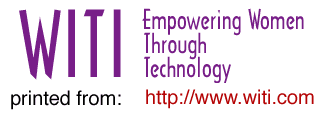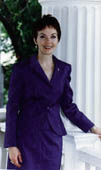
 Gay Warren Gaddis
Gay Warren Gaddis
President and Founder
T3 (The Think Tank)
Gay Warren Gaddis is the founder and president of T3 (The Think Tank) and has been since its inception in 1989. Her entrepreneurial vision for the innovative firm, outstanding achievement in all her business endeavors, and the extraordinary dedication to making the community a better place are a dynamic combination.
Her career began when she joined the Richards Group. She was the director of public relations for Baylor University Medical Center, then the marketing director for a national management consulting firm in Atlanta. Finally Gaddis joined the William Lacy Company in Austin. Later, the firm was renamed Fellers and Gaddis, and she became a full partner in 1986. In 1989, she opened Warren/Martino. She changed the name of the agency to T3 in 1994 to accurately reflect The Think Tank business philosophy. During her career, she has led marketing and advertising efforts for countless clients, including Dell Computer Corporation, Blockbuster Video, the Texas Railroad Commission, Taco Cabana, Hyatt Hotels and Shiner Beer. She has executed initiatives for healthcare clients in every major Texas market that have collectively improved healthcare clients for the state.
Today, Gaddis heads all new business efforts, oversees T3's finances, and mentors the staff. She was born in Liberty, Texas. She parents three children with her husband, Lee.
1. What was your first job in technology?
2. Who has been your most significant mentor? Why?
3. What has been your greatest challenge and what strategies did you use to overcome obstacles?
Since our hiring process is so painstakingly selective, we feel itıs necessary for each member of our management team to be involved. As a group, we decide on the person who we feel will give us the most dynamic work, whoıll play well with others on our diverse team, and whoıll always try to raise their own performance bar.
However, even with such stringent hiring practices, we can still make mistakes. For example, in 1995 I hired two people for T3ıs key management team who turned out to be a bad fit. Once I realized their leadership style was potentially damaging to our agencyıs goals, I immediately let them go, then met with each member of the staff, as well as each of T3ıs clients, to begin rebuilding the trust I felt weıd lost.
4. Who has been the most influential person in your life? Why?
5. What lessons have you learned that would be valuable to women beginning their careers in technology?
Therefore, my advice to women beginning their careers on the Internet front is to beware of risky ideas funded by big venture capital and place your trust in seasoned senior management teams committed to sustainable business strategy. We've been very careful at T3 to only seriously consider dot-com clients that demonstrate, above all else, a firm commitment to business marketing basics.
6. What new technology do you believe will have the most positive impact on the world in the next 20 years? The most negative impact?
On a lighter note:
Professionally, David Ogilvy, who pioneered the advertising industry.
2. What was the last book you read? What books do you love to recommend?
I also highly recommend "Chanel," a biography of designer Coco Chanel. She triumphed over suffering and sadness to build an empire defined by the hardships she endured. (And looked good doing it, too.)
3. If you couldn't do what you are doing now, what profession would you choose?
4. What is your definition of success?
I founded T3 in 1989, when Austin was just emerging as a major high-tech market. Shortly thereafter, we began our now nine-year relationship with Dell Computer, which kicked-off our journey into the world of high-tech marketing. We now use the knowledge gained along the way on accounts like Rx.com and Jobs.com.
When I was 24, a man named Boone Powell made me director of public relations for Baylor University Medical Center and taught me I could do anything. Through him I learned the importance of listening to my instincts when making decisions, a skill thatıs proved invaluable in my career.
Because T3 is really more of an extended family, my greatest challenge is finding the right people. Weıre a bit unconventional. In fact, on any given day youıll find either dogs or babies running around the office. So itıs important to find people who fit in with our group of innovative, non-corporate thinkers.
The most influential person in my life is Lee Gaddis, my husband as well as principal and strategic planner for T3. I trust his judgement without conviction and truly appreciate his straight-shooting approach to issues. (Except when I ask him about my new haircuts.) We share everything from parenting to raising Texas Longhorns on our Double Heart Ranch to managing T3. There is nothing I involve myself in that Lee is not a part of.
This past year brought big changes to the advertising industry with the permeation of high-tech start-up accounts. Things are moving much faster now. Where traditional business models may take a year or more to establish a niche and competitive edge, dot-com companies must grow from an idea to a major industry player overnight.
I think biotechnology is going to hugely affect future generations. For instance, the human genome project, in which scientists have combined their knowledge of biochemistry with advanced technology such as high-throughput DNA analysis, has potential impact for understanding the genetic origin of diseases. The end result of this will hopefully be longer, better quality lives for everyone.
1. If you could have dinner with any 2 people (living or not), who would they be?
Personally, I'd love to have dinner with my father who passed away when I was 12, causing me to take on the responsibility of managing my mother's finances and forcing me to grow up at a very early age. That singular event in my life defined who I have become, and I'd love for my dad to see the person I am now.
I recently read "Lincoln on Leadership," which is about a new style of leadership based on actual letters written by President Lincoln. I find it fascinating that the leadership skills used so long ago are still applicable today.
One of my strengths is my ability to collectively take in all of the information that applies to a situation or issue, assess it, and make a quick but accurate decision on it. It's a skill I think would greatly serve me in a diplomatic position where I could hopefully make a difference on key political issues.
Success is being multifaceted. Enjoying as many different things as you possibly can in life, and touching or influencing those things in a positive way.
|
For more 'WITI Women' articles, go to: http://www.witi.com/wire/witiwomen/ For all the latest news and information on women in technology, visit http://www.witi.com
All rights reserved. |